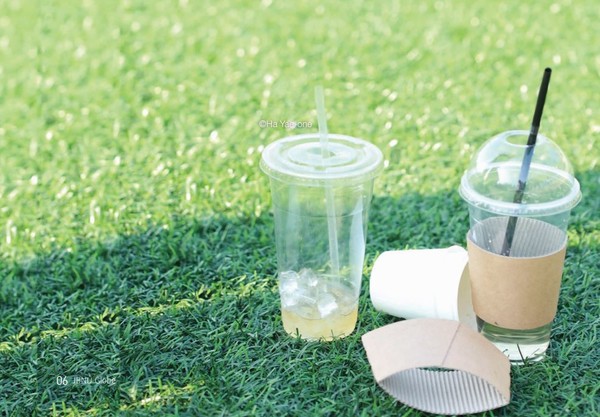
Since the first semester of 2022, the number of students attending school for in-person classes have increased. The floating population on campus also increased, and there was something that increased along with it. It's called 'trash'. In the JBNU online community, articles and photos have been posted showcasing the seriousness of the school waste problem. Specifically, this problem is concentrated in some outdoor locations and has already been raised as a serious concern for JBNU.
- Outdoor Locations that Have Most Trash
Just like in the college buildings and the Central Library, there are trash cans indoors, but it becomes difficult to find trash cans outdoors. The JBNU Globe has covered the three outdoor locations most frequently reported as covered with litter by students.
- Main Stadium
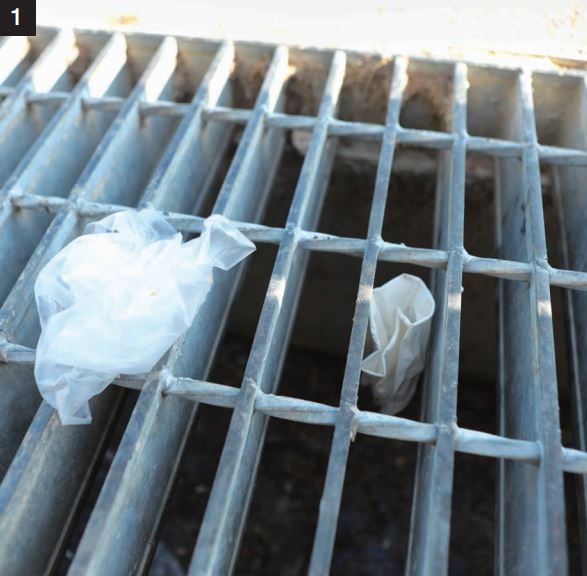
Throughout May, each college held an sports competition inside the main stadium, and students usually use the main stadium for classes and for leisure. At night when the weather is nice, many students sit in a circle on the grass and have a conversation while eating late-night snacks. As the number of students increased, the amount of litter garbage littering also increased. Many types of garbage such as plastic cups, and cans have been found outside. It is prohibited to litter in the main stadium, and a large ‘no littering’ banner is also hung at the entrance of the main stadium. Nevertheless, it is common to see leftover beverages or small pieces of trash left in the gutter.
- Gunji Plaza
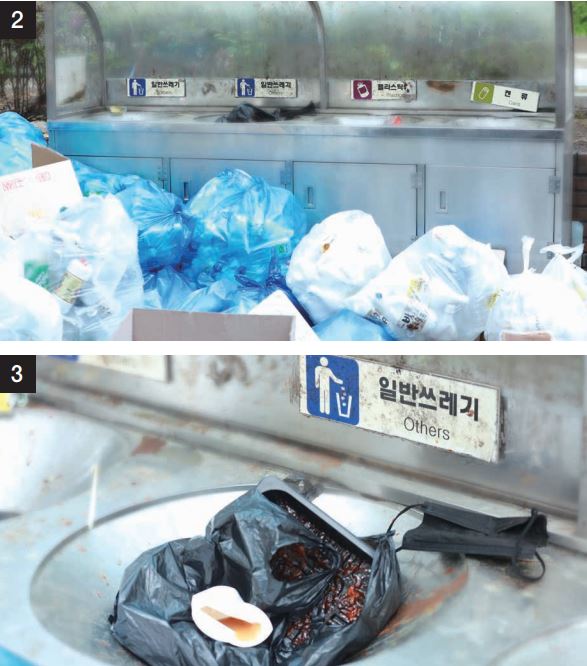
This is a facility frequented by outsiders because it has a fountain and a beautiful Munhoeru[문회루], which is traditional pavilion. It is a location where many students and school faculty hang out and drink coffee during their lunch break. Therefore, plastic cups, straws, and cigarette butts are often found there. There are parasols and wooden desks, so it's common to see people leave trash on top of them.
- Behind the First Student Hall
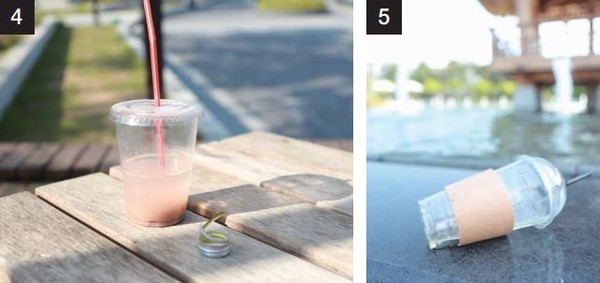
In the first and second Student Halls, there are facilities that students use until late night. The garbage dump is located in the middle of the two halls, and it is also close to the main stadium and Gunji Plaza. Moreover, it is also a place where delivery drivers often pass by and take a break. This location is very accessible, so a lot of garbage is dumped there. However, since there are only four trash containers for separate waste collection, it is common to see garbage littered on the wooden tables next to the trash can outside the first Student Hall.
- Voice of Students
What do JBNU students think about this problem? To hear their detailed opinions and experiences, The JBNU Globe met with four anonymous students and asked them three questions.
Student A: “I mainly play soccer with my friends in the main stadium. During a game, a plastic bag from the corner flew onto the grass, and it blew onto my legs. I fell and injured my ankle. When I looked inside the plastic bag, I was angry that there were food wastes and empty cans. I would like schools to have stricter regulations on food and beverages that are allowed into the main stadium.”
Student B: “One evening in late May, I saw a student who said that separating waste is too complicated and left the plastic waste outside in Gunji Plaza. I was ashamed to attend the same university as him. Students should be more aware about the basic responsibilities that we all share on campus. If more JBNU street cleaners are hired, the situation will improve.”
Student C: “I went to the trash can behind the first Student Hall, and the general trash container was full of recyclables. I think the problem is that there is no proper separate waste collection facility on campus. Although it will cost a lot of money, schools must increase the size and number of bins to accommodate the number of students.”
Student D: “I was resting on a wooden table in Gunji Plaza one day, but I started to feel uncomfortable because of the pigeons that came in smelling the trash from the snack bags and cups. If there is more public awareness of picking up trash that is not of own creation, this issue could improve.” To form a kind of awareness, I hope that the school will organize trash-related volunteer activities.”
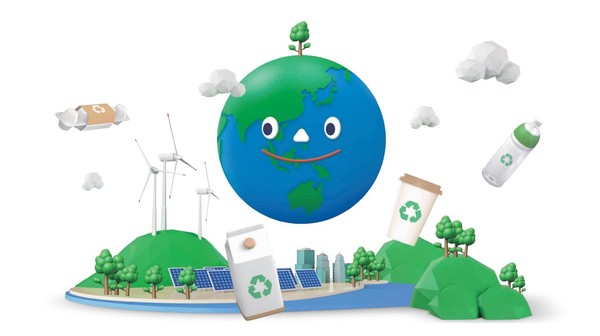
- Interview with Anonymous School Officials
The JBNU Globe interviewed anonymous school officials to hear more details about the school waste problem. Here is the information gleaned from our investigation.
First, as a result of investigating data on waste emissions at JBNU, no accurate statistical data existed. However, the amount of standard plastic garbage bags that have been used could be roughly estimated. Compared to non-contact classes last year, a lot of trash is currently being discharged. There has also been a difference in the amount of waste generated during the vacation and the semester. For example, the amount of standard plastic garbage bags used were 624 sheets in January, 596 sheets in February, 970 sheets in March, and 955 sheets in April. There was a significant difference between January and February during the vacation period, and between March and April during the semester.
Second, The JBNU Globe investigated why it is difficult to increase the number of trash cans outside of the main facilities on campus. In the past, there were many trash cans in outdoor locations. However, due to complex problems such as damage to trash cans, those are currently installed in only a few outdoor locations on campus. But, trash cans are installed indoors and toilets.
Third, The JBNU Globe investigated how street cleaners typically dispose of trash after festivals and concerts. This year, Daedong Festival[대동제], which is the largest festival at JBNU, and sports competition generated a considerable amount of waste on campus. The street cleaners said they put in additional personnel over the weekend to clean up. Currently, about 140 street cleaners are helping to clean the JBNU campus.
Finally, many JBNU street cleaners currently think that the situation is better because students’ awareness is more developed than in the past. However, properly separating waste collection at JBNU is by no means perfect. The more thorough the recycling, the cleaner the school environment will be. Therefore, anonymous school officials would like students to pay more attention to recycling trash.
- Solve Problems Easily in Your Daily Life: ‘Plogging’
The JBNU Globe came up with ‘plogging’ to solve the school trash problem. Plogging is an activity that picks up trash while jogging. It is growing in popularity because it is beneficial for both personal health and the environment.
A graduate student and office worker, Yoon Seul, is constantly plogging in Jeonju. He started plogging to recycle garbage on the streets and practice carbon neutrality after feeling afraid of the climate crisis. Another reason is because marine life is suffering from plastic pollution. He can see the horrible contradiction in the vicious cycle of humans eating human-made plastic again from polluted fish. He usually picks up trash around the main stadium, Student Hall, and the JBNU old gate. The trash he picks up the most is the plastic cups we take out from cafes.
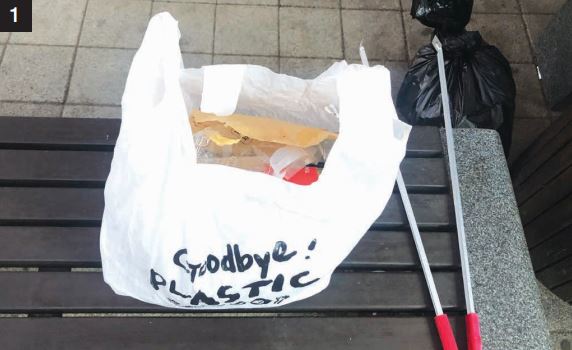
He commented that there are not many trash cans in the school. Furthermore, they are not clearly separated to recycle or the trash cans are too small. Specifically, behind the first Student Hall, there are only three types of recycling bins: for general trash, cans, and plastics. For this reason, it is difficult to dispose of trash that is not of these categories.
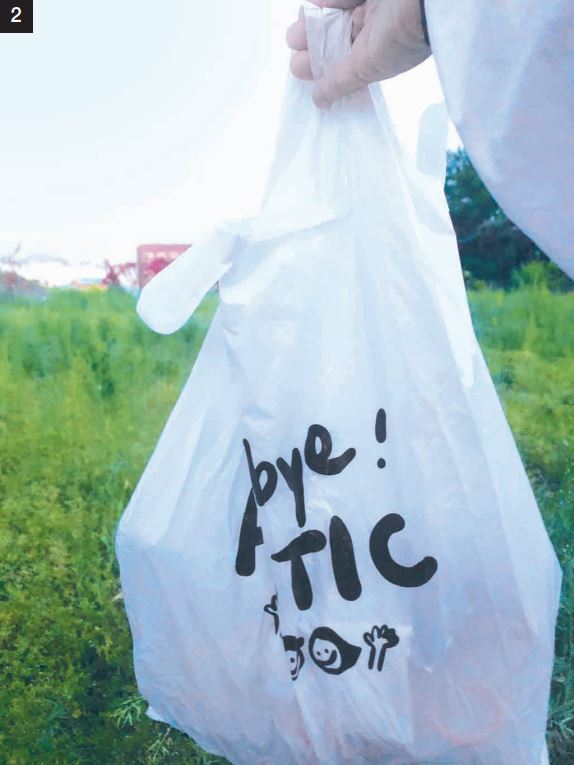
He also recruited students from the JBNU online community ‘Everytime’ and they worked together to plog around campus. He said that there was a risk of COVID-19, so he used a method in which each person went plogging and logged their activity on an app. Thankfully, seven students participated in the plogging for two weeks. The most memorable review that one students left behind was, "I realized that there was a lot of trash around me while I was plogging." Yoon said, “I hope it will become a natural routine to pick up trash, and that we will think twice before littering again. I will continue to do plogging for the earth and the people I love.”
Recently, the General Student Council conducted plogging activities through a resource circulation project. They are trying to solve environmental problems easily in our daily life by encouraging others to plog the areas that need to be cleaned up and uploading the plogging process and the results on social media. In addition, the JBNU Service Center conducted plogging as a 2022 college student volunteer program in June. Volunteers helped clean up trash around the main stream in Jeonju.
- Other Universities’ Efforts to Reduce Waste
The JBNU Globe investigated what other universities are doing to reduce the cities’ waste problems.
- Pohang University of Science and Technology
In the case of Pohang University of Science and Technology, the trash cans in the offices were removed. In addition, efforts are being made to reduce waste emissions through school announcements.
- Green Campus Project
In another case, Seoul National University has participated in the Green Campus project organized by the Ministry of Environment and the Korea Environment Corporation since May 2019. Various schools such as Incheon University and Shinhan University participate in the Green Campus project as well.
- ‘Milestones for a Zero Waste Campus’
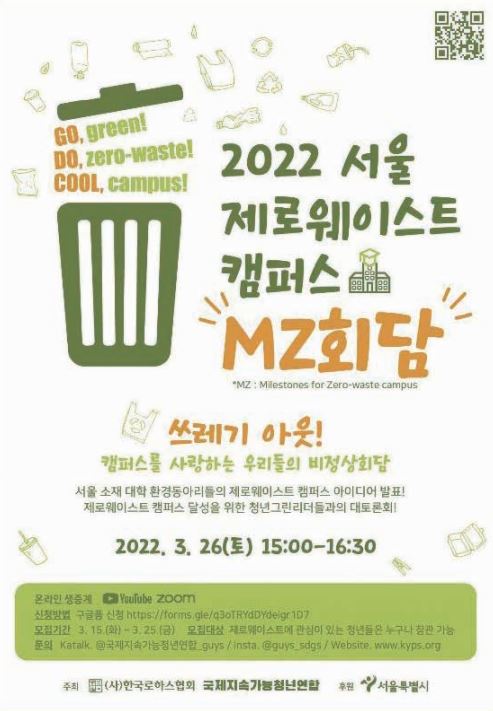
The ‘Milestones for a Zero Waste Campus’ project has two functions: a zero-waste campus without disposable items, and for college students and young people, the main players of the MZ generation, to participate. The Seoul Metropolitan Government promoted a zero-waste campus project to reduce university residential waste (disposable goods) during the ‘Milestones for a Zero Waste Campus’ event which was held on March 26, 2022. Various universities such as Konkuk University, Seoul National University, and Ewha Womans University participated in this event.
As we have discussed, the problem of trash on campus and the issues of solving it are emerging. Have you experienced the serious JBNU waste problem? Why don’t we all practice cleaning up after ourselves and picking up stray litter to make our society a cleaner place?
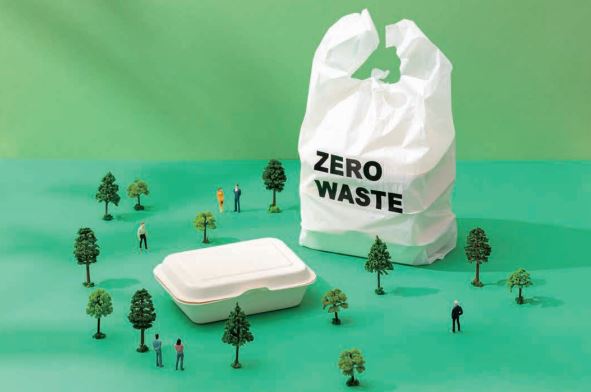
| Park Jeong-cheol, Ha Yae-one Reporters, Jo Ha-yoon Cub-Reporter

